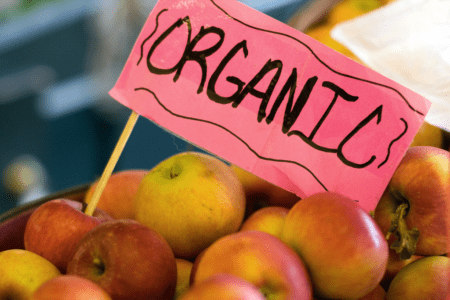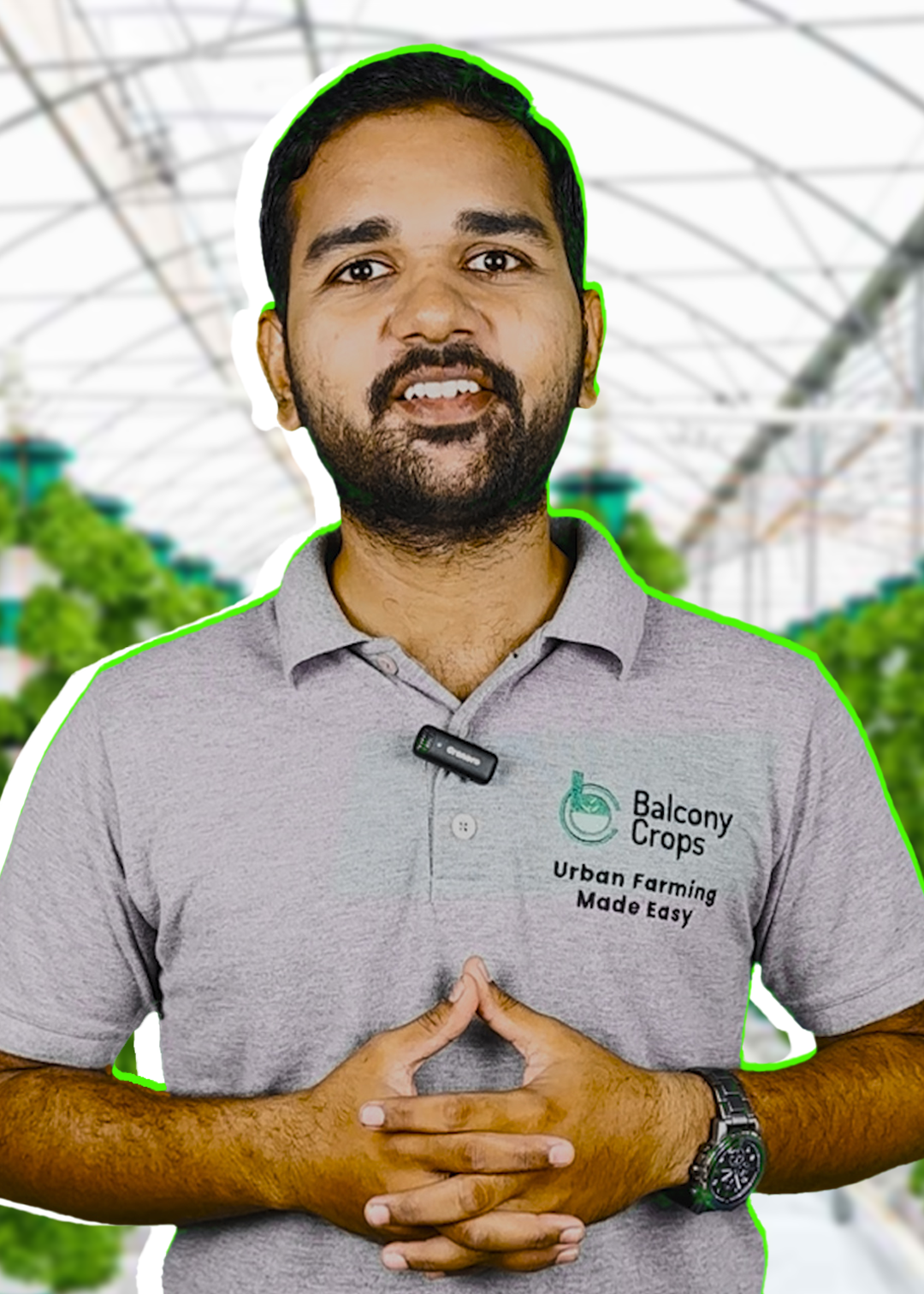As someone deeply involved in this revolutionary method of cultivation, I’m thrilled to share insights into this innovative approach to farming. Hydroponics, the science of growing plants without soil, has gained substantial attention in recent years, especially in the realm of commercial hydroponics. From sprawling greenhouses in the countryside to compact setups in urban balconies, hydroponics is reshaping how we think about farming.
But here’s a question that often stirs debate: Can hydroponically grown produce be considered organic? This question is particularly intriguing for enthusiasts and practitioners in places like Chennai, where commercial hydroponics is burgeoning. To answer this, we first need to understand what each term really means and how they intersect.
Table of Contents
Understanding Hydroponics: The Basics
Hydroponics, a term that may sound futuristic, is actually an age-old practice, refined and adapted for modern times. At its core, hydroponics is about growing plants in a water-based, nutrient-rich solution, without the use of soil. This method leverages a controlled environment to optimize plant growth, focusing on providing the perfect balance of nutrients, light, and oxygen directly to the plant roots.
The beauty of hydroponics lies in its versatility and efficiency. It can be implemented anywhere, from large-scale commercial hydroponics farms to small, personal gardens in urban settings. This adaptability makes it an ideal solution for cities like Chennai, where space is a premium and the demand for fresh produce is high.
In commercial hydroponics, the focus is on maximizing yield and efficiency. These systems are often highly sophisticated, employing advanced technologies to monitor and control environmental factors such as light, temperature, and nutrient levels. This precision agriculture ensures high-quality produce, often with a smaller environmental footprint compared to traditional farming.
As we delve deeper into hydroponics, keep in mind that this innovative method is more than just a farming technique; it’s a sustainable approach to food production, catering to the growing needs of our urban landscapes.
What Does ‘Organic’ Really Mean?
The term ‘organic’ has become a buzzword in the world of agriculture and food production, but what does it really signify? At its essence, organic farming refers to a method of cultivation that emphasizes the use of natural substances and processes. This means no synthetic pesticides, fertilizers, or genetically modified organisms (GMOs) are used. Instead, organic farming relies on ecological processes, biodiversity, and cycles adapted to local conditions.
Organic farming is not just a set of practices; it’s a philosophy. It’s about maintaining ecological balance and conserving biodiversity. It emphasizes the health of the soil, the ecosystems, and the people involved. This approach to farming considers the long-term impact on the environment and aims to produce food while establishing an ecological balance to prevent soil fertility or pest problems.
Hydroponics vs. Soil-Based Organic Farming
In the quest to understand whether hydroponically grown produce can be considered organic, it’s essential to compare it directly with traditional soil-based organic farming. While both methods share the common goal of producing healthy and sustainable crops, they differ significantly in their approaches and underlying principles. The following table provides a succinct comparison of these two methods across various aspects, from the medium used for plant growth to sustainability considerations.
| Aspect | Hydroponics | Soil-Based Organic Farming |
| Medium for Plant Growth | Water-based, nutrient-rich solution. No soil involved. | Relies on soil health; uses organic matter like compost. |
| Nutrient Delivery | Nutrients provided directly to roots in a controlled manner. | Nutrients absorbed from the soil, supplemented organically. |
| Pest Control | Controlled environment reduces pest issues. | Uses natural pest control methods. |
| Environmental Control | Precise control over nutrients, light, and temperature. | Dependent on natural environmental conditions. |
| Yield and Growth Rate | Potentially higher yields and faster growth. | Dependent on soil conditions and weather. |
| Principles of Agriculture | Focus on efficiency and control. | Emphasizes ecological balance and soil health. |
| Sustainability Considerations | Less water usage, but requires nutrient solutions. | Promotes biodiversity and long-term soil fertility. |
This table highlights the fundamental differences and unique approaches of hydroponics and soil-based organic farming. While the traditional organic method is deeply rooted in soil health and ecological balance, hydroponics offers a modern, controlled approach that bypasses soil entirely. Despite these differences, it’s important to note that hydroponics can align with organic principles in its own way. By using organic nutrient solutions and adhering to environmentally responsible practices, hydroponic systems have the potential to produce crops that meet organic standards. This realization opens up a new perspective, suggesting that hydroponically grown produce could indeed be considered organic, provided it follows the core principles of organic agriculture.
Commercial Hydroponics: A Case Study in Chennai
I’m often asked about the organic potential of hydroponically grown produce. A perfect example to illustrate this is our collaboration with FASTA PIZZA in Chennai. Our joint venture was not just about supplying fresh ingredients for pizzas; it was a step towards understanding and implementing organic practices in hydroponics.

In our 500 sqft hydroponic farm, we grow eight varieties of vegetables and four types of leafy greens, including Palak, Coriander, and Rocket Arugula. The remarkable growth and health of these plants, especially the Rocket Arugula with its 10-15 leaves per plant, showcase the effectiveness of our methods. But more importantly, these crops are grown without pesticides, aligning with organic standards.
This success has sparked interest among other Chennai businesses in hydroponics as a viable, organic-compliant method. It’s a testament to how hydroponics, when managed responsibly, can meet and even enhance organic farming principles. If you’re considering this sustainable path for your business, join us at Balconycrops in pioneering this green revolution.
As we’ve explored throughout this blog, the question of whether hydroponically grown produce can be considered organic is layered and complex. However, through examples like our collaboration with FASTA PIZZA in Chennai, it’s evident that hydroponics can indeed align with organic principles, especially when managed with a focus on sustainability and without the use of synthetic inputs.
In my journey with Balconycrops, I’ve seen firsthand the potential of hydroponics to revolutionize urban agriculture, offering a sustainable and efficient alternative to traditional farming methods. Whether it’s for commercial scale operations or for personal urban gardens, hydroponics presents a viable option for growing fresh, healthy, and potentially organic produce.
If this discussion has sparked your interest in hydroponics, or if you’re considering adopting this method for your own business or personal use, I encourage you to reach out. You can contact me, Adarsh, at Balconycrops on +91 7305773026. Let’s explore how we can make your hydroponics venture a success, potentially embracing the principles of organic farming along the way.








